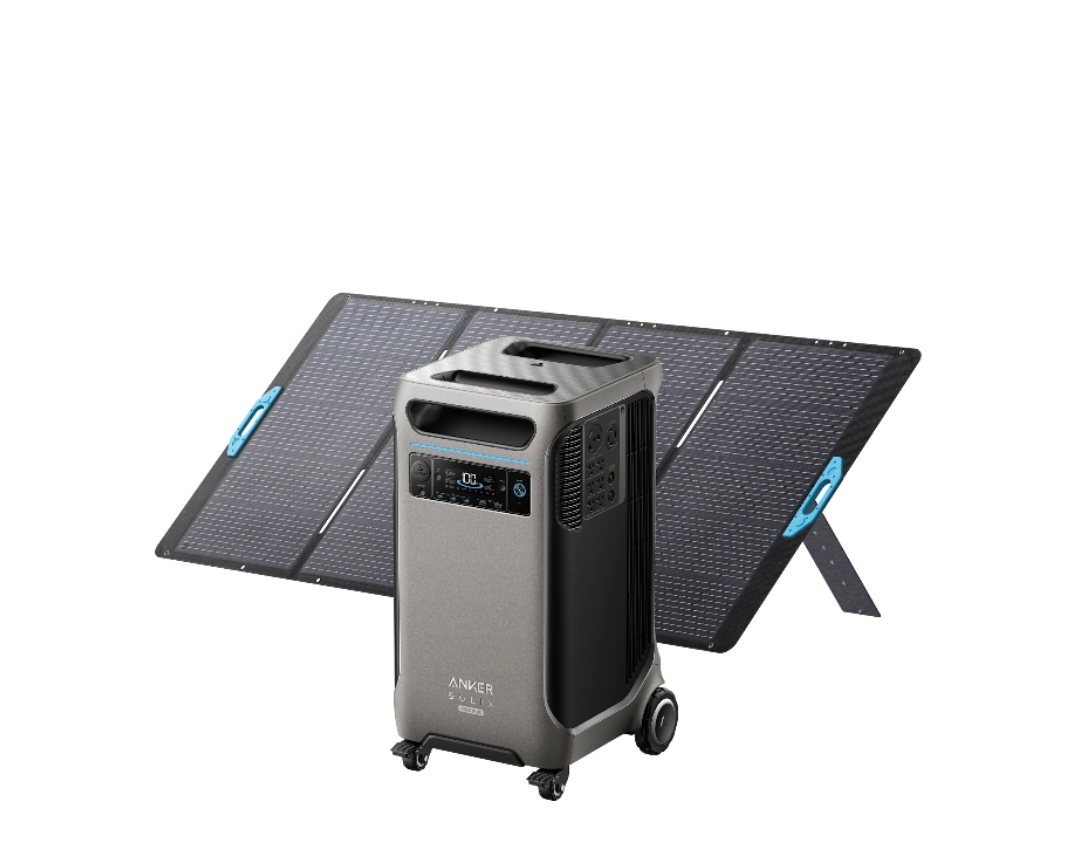With the world leaning more towards solutions to renewable energy, the solar generator has emerged as one of the most notable inventions in generating sustainable energy. It is a small but mighty device which converts sunlight into electricity providing a clean, quiet and mobile source of energy. Solar generators have become a viable and environmentally friendly substitute to the conventional fossil-powered generator whether you are an off-grid hunter, a camper, or just in case of unforeseen power outages.
Understanding How a Solar Generator Works
A solar generator is powered by the solar panels that absorb the sun’s energy, which is stored in an internal battery and converted to usable electricity by the use of an inverter. This is a process that would give a constant supply of energy instead of depending on fossil fuels. Solar generators are noiseless and do not produce harmful fumes unlike the traditional gas powered generators that have to be refueled all the time and produce fumes. This not only makes them a friendlier option to the environment but also makes them most suitable for indoor use or where noise pollution is a concern that has to be reduced.
I was impressed by how easy a solar generator is when I first tried out the generator during a cabin trip that lasted a week. Having only a few solar panels on the sun, I could charge laptops, phones, lights and even a tiny refrigerator. This experience showed that solar energy could be effective and very convenient when well utilized.
Advantages of Using a Solar Generator
A solar generator has the most apparent benefit in the form of sustainability. It is completely dependent on free, and free solar energy. This makes it a long-term cost-saving solution despite the start-up cost. Additionally, solar generators do not need much maintenance as compared to their fuel based generators. No moving components, no changing of oil and no fuel lines to fret about and this minimizes the chances of a mechanical failure.
They are also very portable and this versatility is also added. Some of these models are light and small, and they can be easily transported when one is on road trips, camping, or conducting field research studies. In my case, being a frequent user of remote outdoor conditions, a portable solar generator makes sure that my devices are not discharged, without the inconvenience of finding a power source or carrying fuel.
Choosing the Right Solar Generator for Your Needs
Selecting the right solar generator depends on your energy needs. For students or professionals who primarily need to power laptops, tablets, and mobile devices, a smaller unit with a modest battery capacity may suffice. On the other hand, if you plan to run larger appliances like mini-fridges, power tools, or medical equipment during emergencies, you will need a higher-capacity generator with a stronger inverter output.
It is also crucial to consider the quality and wattage of the solar panels included or compatible with the generator. High-efficiency panels can charge the battery faster, which becomes especially important during cloudy days or limited sunlight conditions. I learned this firsthand while relying on a lower-wattage panel during a rainy week, which significantly slowed the charging process. Upgrading to higher-wattage panels made a noticeable difference in performance.
The Environmental Impact of Solar Generators
The fact that a solar generator does not negatively affect the environment is one of the reasons why it should be chosen. Conventional generators produce carbon dioxide and other pollutants which cause climate change and air pollution. With solar generators, however, there is no emission of any pollution and so your carbon footprint would be minimal. This is more attractive to the environmentally conscious students, researchers and travelers who would prefer to reduce their ecological footprint but remain connected.
Moreover, a solar generator can be used to facilitate the overall shift towards renewable energy. Each watt of solar power created eliminates the need to use grid power which may still be created through coal or natural gas. By investing in solar technology, people are joining a general trend towards the infrastructure of green energy.
Final Thoughts
Investing in a solar generator is not only a question of convenience, it is a question of a future-oriented and sustainable attitude to energy consumption. These devices can be used to supply the necessary electric power when camping is in progress and also as a backup power supply during power outages and as well as being environmentally friendly. The fact that clean power can be reliable and empowering has been shaped by my personal experience using solar generators, which showed that clean power is not only reliable but also positively impacting. To students, professionals and even the adventurer, going green by adopting solar is a move towards being self reliant and a brighter future.
FAQs About Solar Generators
Are solar generators reliable during cloudy or rainy weather?
Yes, but their performance depends on the available sunlight. Most solar generators can still generate power under diffuse light, though at a slower rate. Many models also allow charging from wall outlets or car chargers as backup options.
How long do solar generators last?
High-quality solar generators typically last 10 to 15 years, depending on battery type and maintenance. Lithium-ion batteries, which are common in modern units, offer longer lifespans and more charge cycles than older lead-acid batteries.
Can a solar generator power an entire home?
While portable solar generators are ideal for small appliances and electronics, powering an entire home would require a larger stationary solar power system with multiple panels and high-capacity batteries.
